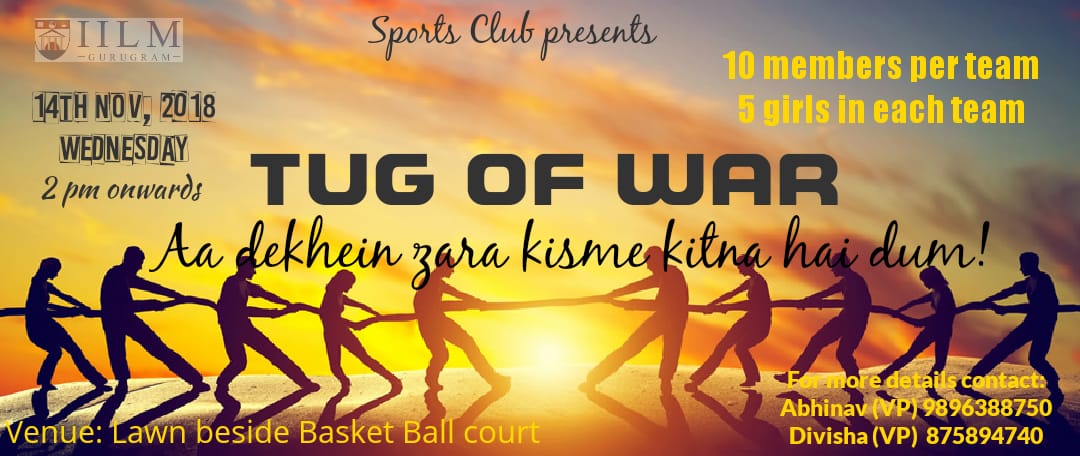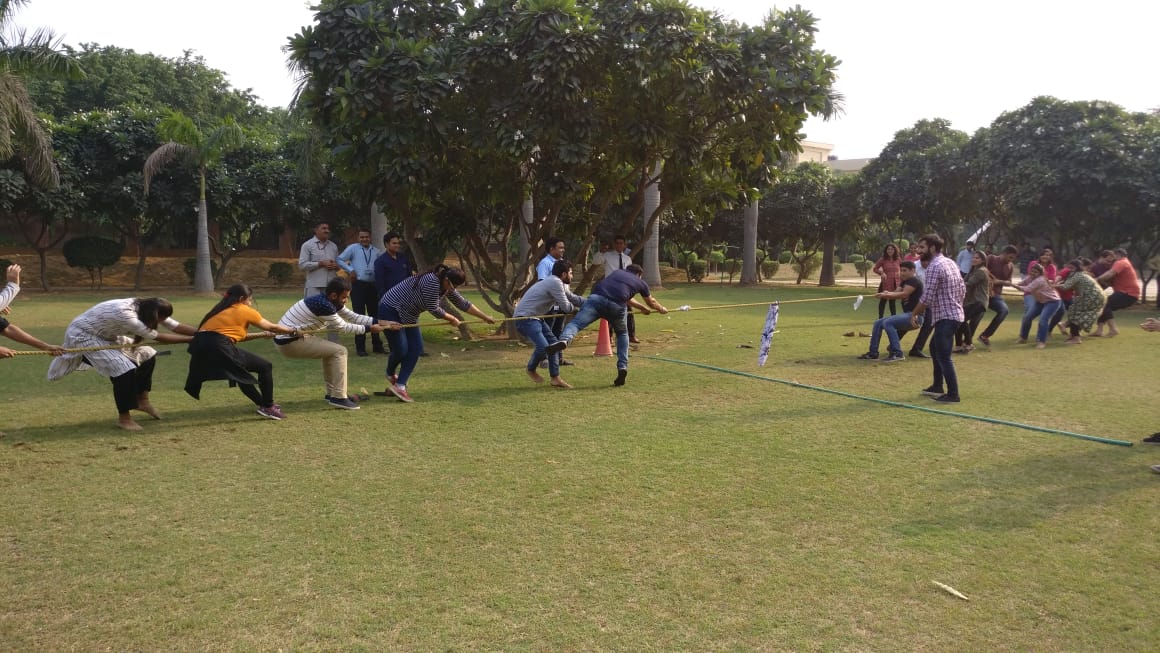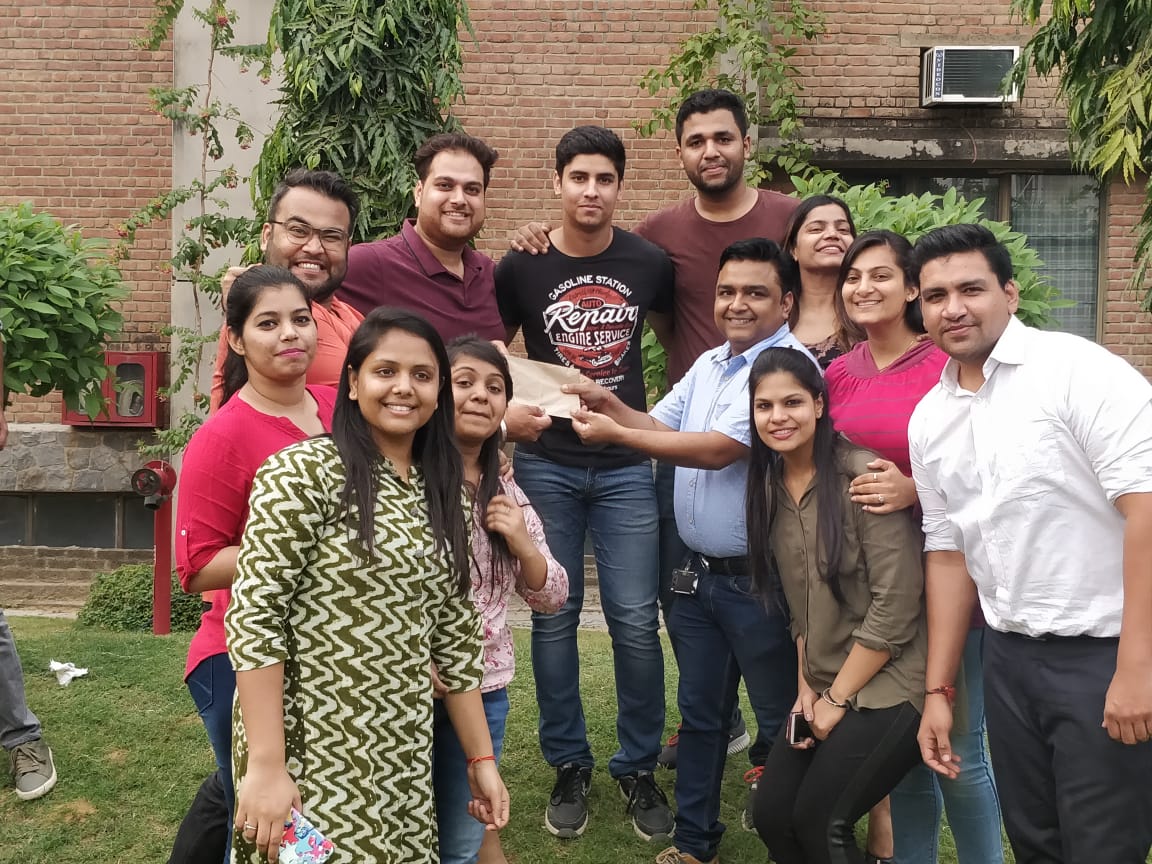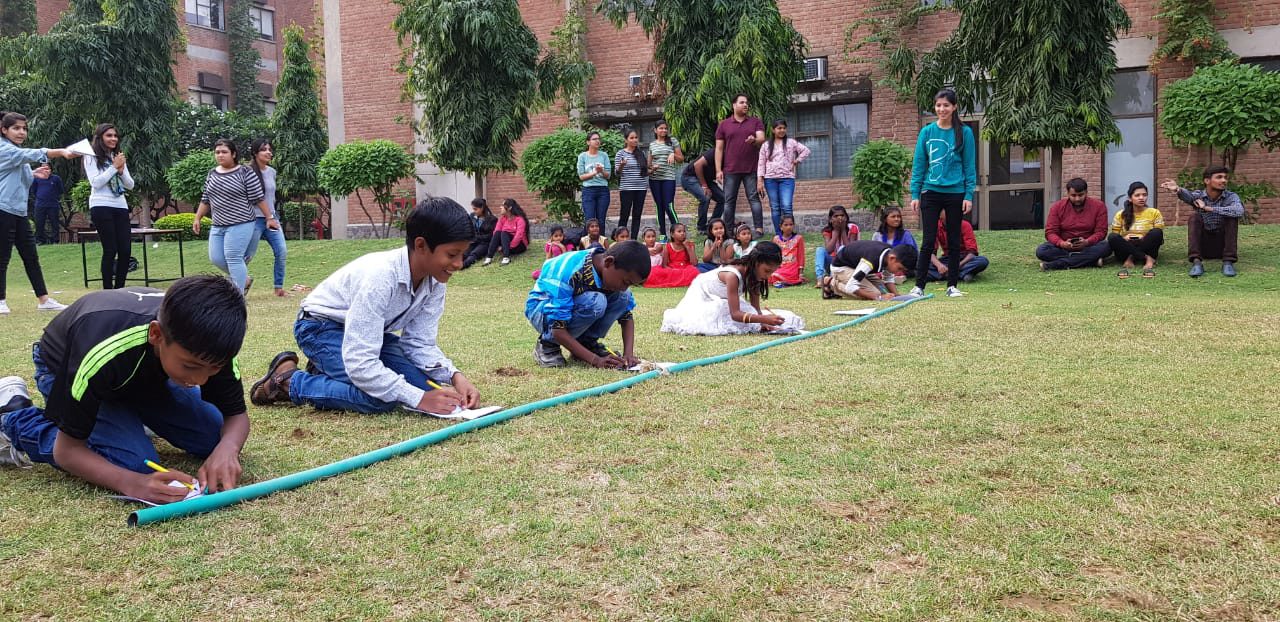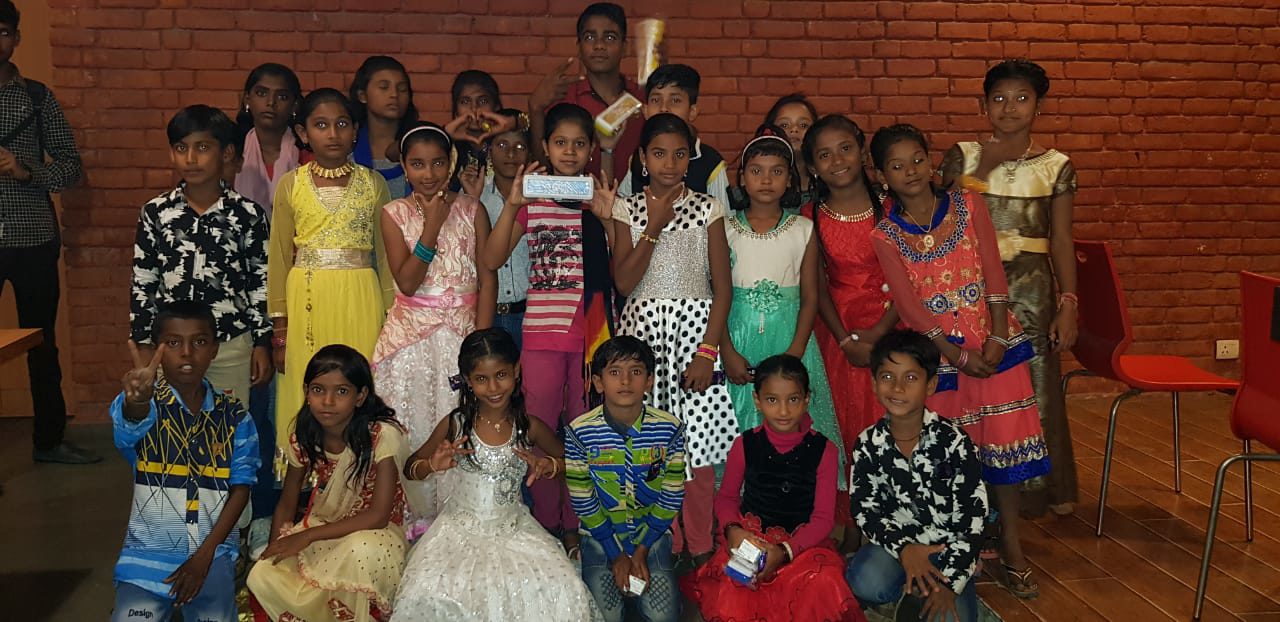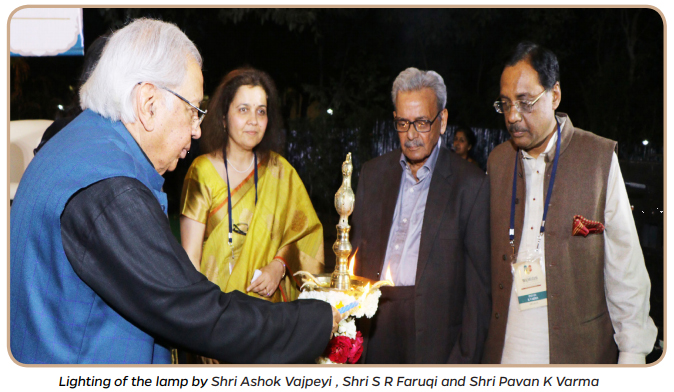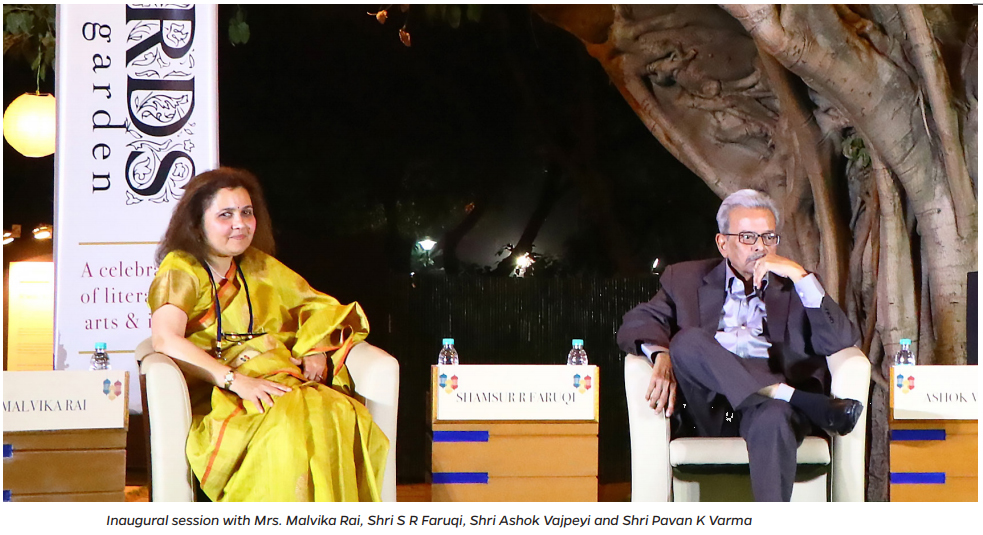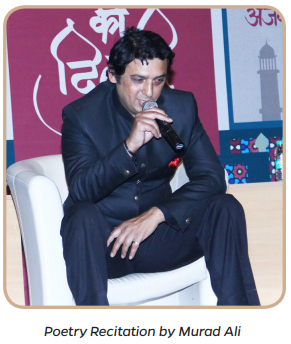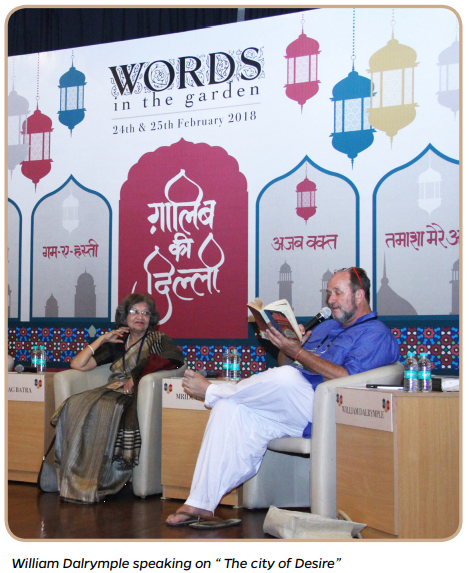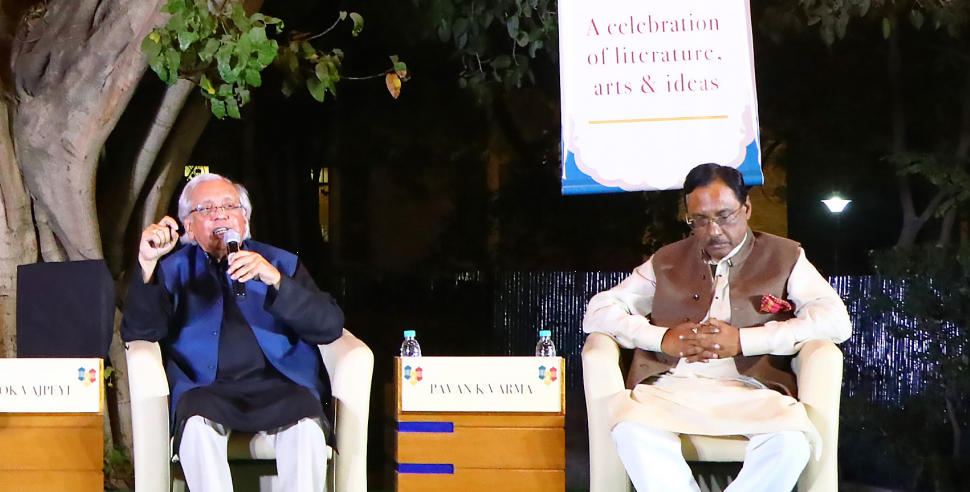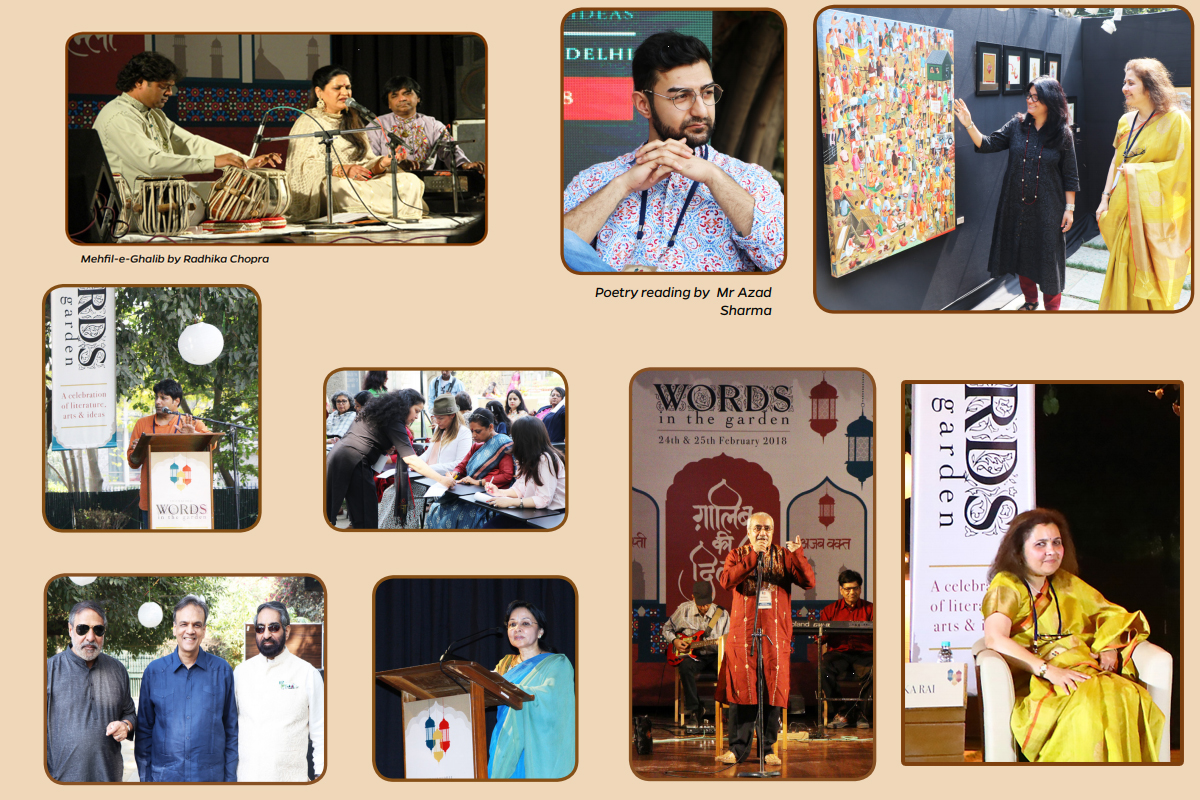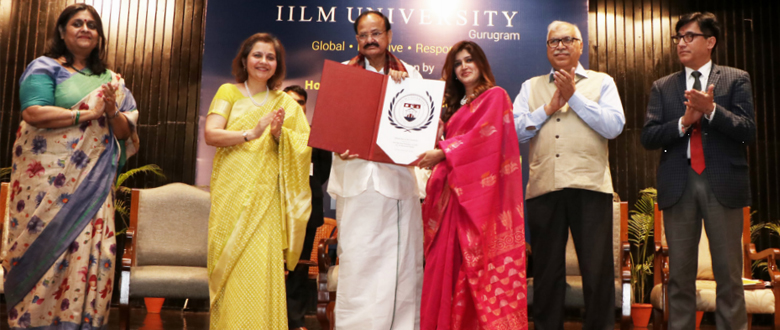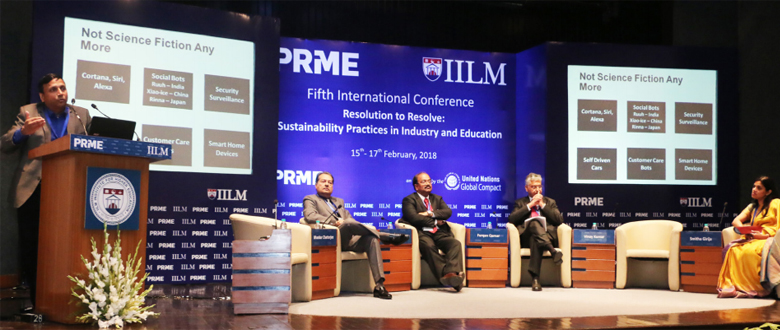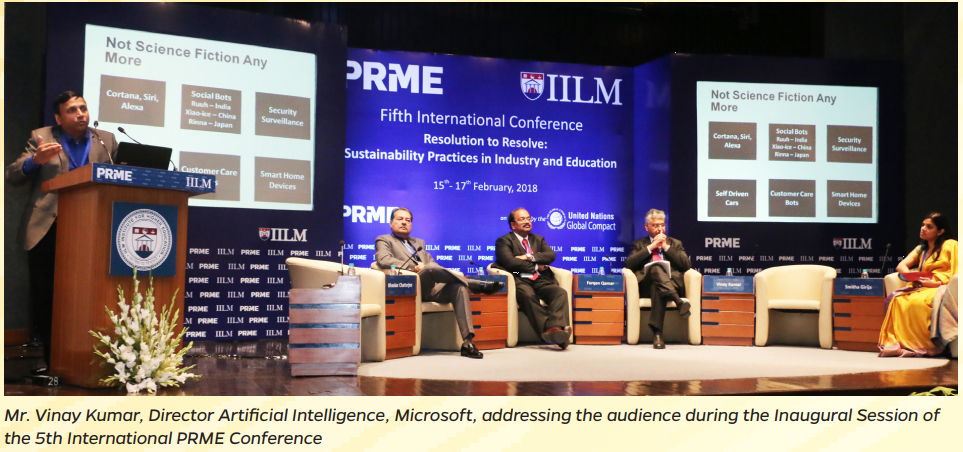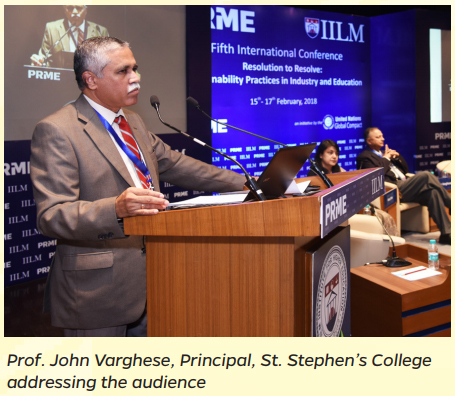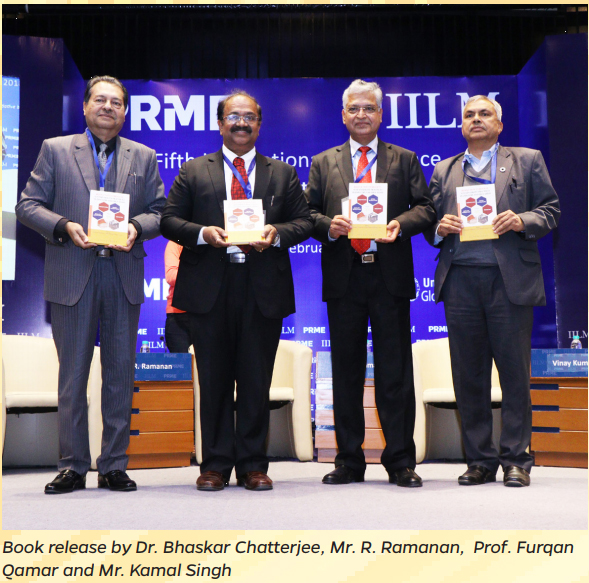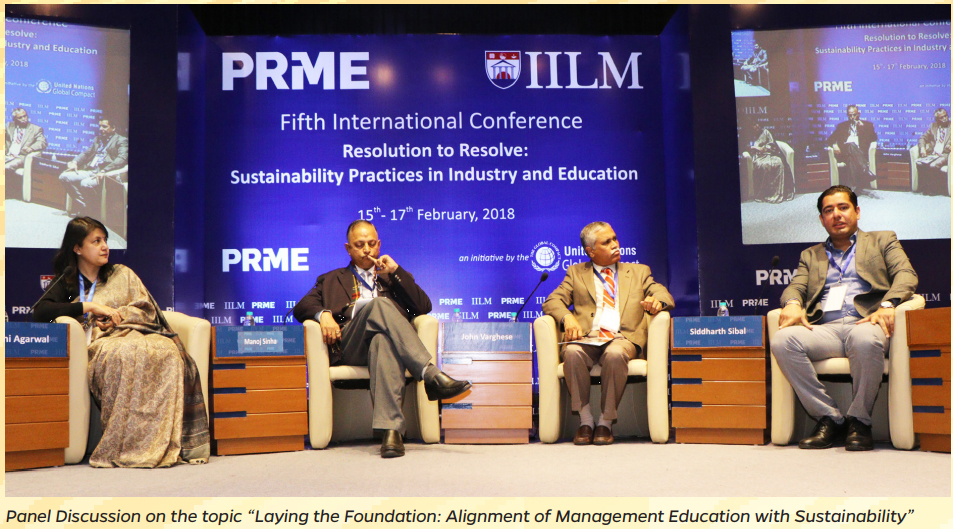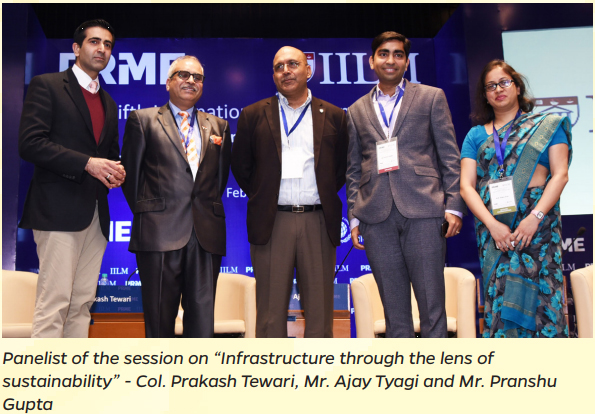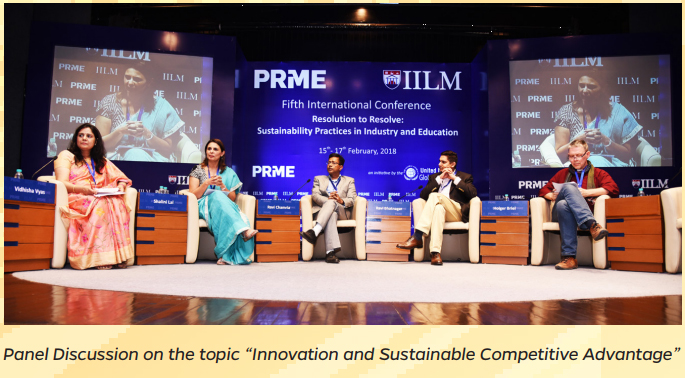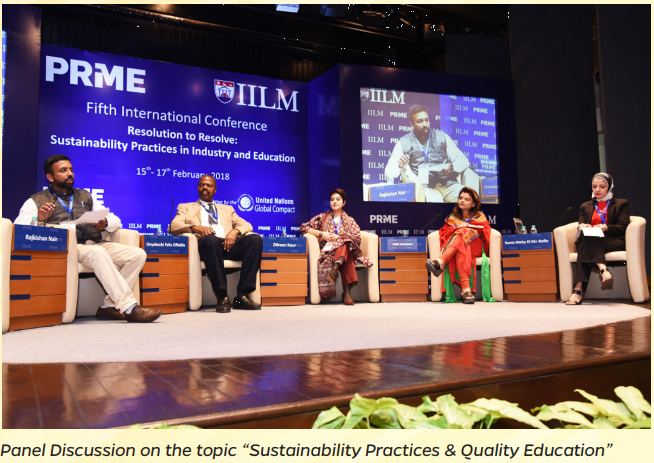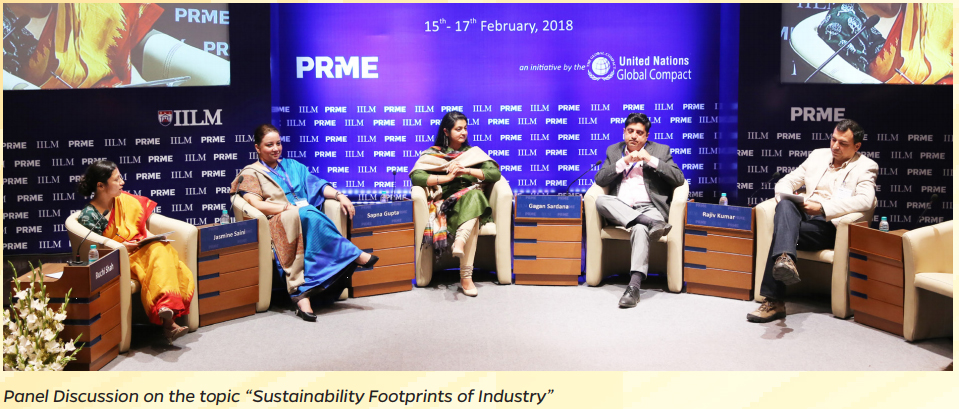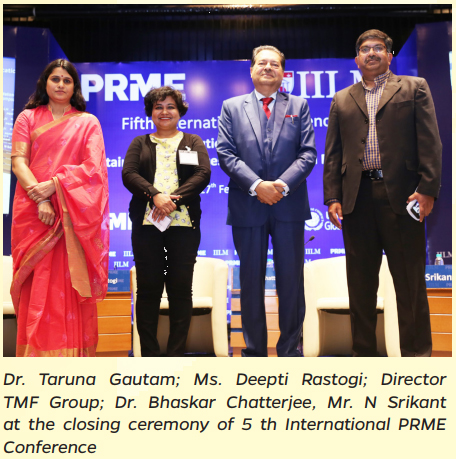IILM University has been set up under the Haryana Private Universities (Amendment) Act 2018, and the University will open its doors to the students from the current academic year starting from July 2018. Mr. S.Y. Quraishi, Former Chief Election Commissioner, is the Chancellor Designate of IILM University and Dr. Sujata Shahi is the Vice Chancellor Designate. IILM University, Gurugram, was inaugurated by Honorable Vice President of India, Shri M. Venkaiah Naidu, on 20 th April 2018. IILM University, Gurugram, has been established on the principles of being Global, Inclusive and Responsible. Anchored around the concept of liberal education with technology focus, the University is benchmarked with the best of liberal education universities in the world. The University, having international collaborations with the best global and national institutions, will be inclusive, reaching out to all sections of society. The focus of the new University will be on Skills, Innovation and Entrepreneurship, and Technology. Located on the DLF Golf Course Road, Sector 53, Gurugram, the University has an environment friendly, world-class infrastructure, and a safe and secure campus for the students and faculty members.
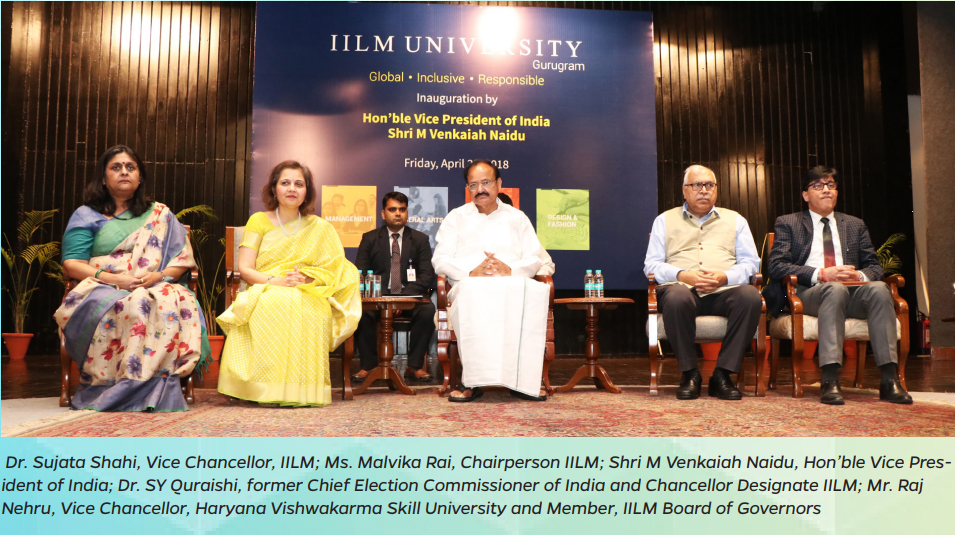
The inauguration event, held at IILM campus in Lodhi Road, witnessed eminent personalities, Dr. S.Y. Quraishi, Former Chief Election Commissioner and Chancellor Designate of IILM University and Shri Raj Nehru, Vice Chancellor, Haryana Vishwakarma Skill University, among many others. The evening began with Chairperson IILM Group, Mrs. Malvika Rai and Mr. Anil Rai, welcoming the Honourable Vice President of India, along with Dr. Quraishi and Dr. Sujata Shahi. Mr. Anil Rai shared with the Vice President the vision behind the University and the Centres of Excellence.
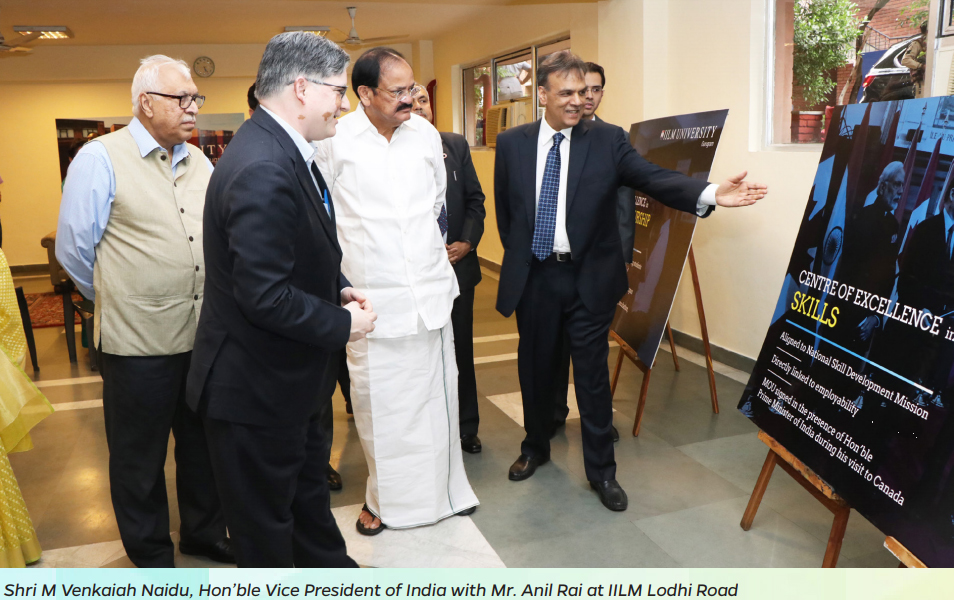
The inauguration event started with Dr. Sujata Shahi, Vice Chancellor Designate, welcoming the Hon’ble Vice President of India, Shri Venkaiah Naidu; Chancellor Designate, Dr. Quraishi; Shri Raj Nehru, Vice Chancellor, Haryana Vishwakarma Skill University; Mrs. Malvika Rai; Mr. Anil Rai, and other distinguished guests, colleagues and the students.
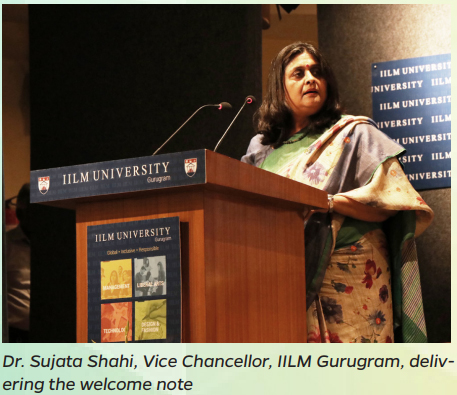 In her welcome address she said, “It is our privilege to welcome Hon’ble Vice President of India, Shri Venkaiah Naidu Ji. Sir, we are deeply honored to have you with us on this very special and momentous occasion for the IILM family. Today we remember our founder, Dr. Kulwant Rai. In some measure, this is the fulfillment of his dream. Dr. Kulwant Rai’s abiding passion was to make education available to all. His focus on education is best described in the words of Bhagawan Sri Sathya Sai Baba,” The process of education is to render the individual a happier and more useful person; it must also make him a better citizen, able and willing to further the progress of the nation to which he belongs & Sir, in December 2013, Mr. Anil Rai and Mrs. Malvika Rai met Shri Narendra Modi in Ahmedabad. Modi ji asked them to set up a liberal arts university because, in his words, “We do not want to create robots.” Our University is an off shoot of that vision to create this world class liberal arts university in Gurugram. IILM University will deliver an academic experience that fosters intellectual curiosity, a critical thought process, self-reflection, leadership and a heightened sensitivity to one’s socio-cultural environment. Sir, our University is committed to shape a better future, create a higher quality of life, and give wings to a million dreams and aspirations with confidence, energy and passion for a greater India.” She thereafter invited the Chancellor Designate, Dr. Quraishi, to deliver his address and welcome the Honorable Vice President of India .
In her welcome address she said, “It is our privilege to welcome Hon’ble Vice President of India, Shri Venkaiah Naidu Ji. Sir, we are deeply honored to have you with us on this very special and momentous occasion for the IILM family. Today we remember our founder, Dr. Kulwant Rai. In some measure, this is the fulfillment of his dream. Dr. Kulwant Rai’s abiding passion was to make education available to all. His focus on education is best described in the words of Bhagawan Sri Sathya Sai Baba,” The process of education is to render the individual a happier and more useful person; it must also make him a better citizen, able and willing to further the progress of the nation to which he belongs & Sir, in December 2013, Mr. Anil Rai and Mrs. Malvika Rai met Shri Narendra Modi in Ahmedabad. Modi ji asked them to set up a liberal arts university because, in his words, “We do not want to create robots.” Our University is an off shoot of that vision to create this world class liberal arts university in Gurugram. IILM University will deliver an academic experience that fosters intellectual curiosity, a critical thought process, self-reflection, leadership and a heightened sensitivity to one’s socio-cultural environment. Sir, our University is committed to shape a better future, create a higher quality of life, and give wings to a million dreams and aspirations with confidence, energy and passion for a greater India.” She thereafter invited the Chancellor Designate, Dr. Quraishi, to deliver his address and welcome the Honorable Vice President of India .
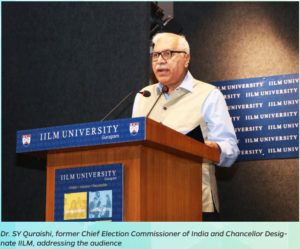 Dr. Quraishi highlighted that IILM University envisages becoming a leading Liberal Arts University in Asia with a focus on Entrepreneurship, Innovation and Technology and then he unfolded the IILM University vision. In his address he said: “The vision of IILM University is – Global, Inclusive, Responsible. The University has 4 Schools – Liberal Arts, Management, Technology, Design and Fashion. We have 5 Centers of Excellence: Skills, Entrepreneurship & Business, Technology, Innovation & Sustainability, and Teaching, Research & Learning. IILM University envisages becoming a leading Liberal Arts University in Asia with a focus on Entrepreneurship, Innovation and Technology. This century needs youth who are capable of navigating cultural differences, have a sense of groundedness and are able to lead in an increasingly interdependent global world. Liberal education develops these qualities. It encourages students to explore and develop their interests,to think critically about issues from multiple perspectives, to communicate effectively and become responsible leaders with a commitment to society. Our university shall focus on Liberal Education – an education that provides students with flexibility and space to explore and pursue a wide range of courses instead of focusing solely on one field of study. Our students will have the option of a flexible degree that won’t preclude a variety of job prospects across disciplines.We will provide an integrated approach to undergraduate and post graduate education with a global outlook, supported by over thirty academic collaborations. IILM University will therefore be a responsible and inclusive center of learning. Hon’ble Vice President in one of his recent speeches had said, “It is important for every education institution to create an atmosphere which encourages innovation, new ideas and tap the talent of the young minds.” We have at IILM Uniersity a 40,000sq ft. Incubation Center to promote entrepreneurship and inspire innovation amongst our students. The IILM Incubation Center proposes to provide mentorship and access to funds to enable our students to start up their own businesses and not depend only on jobs. Our University will also focus on next generation technologies in break through areas such as Artificial Intelligence, Robotics, the Internet of Things, Autonomous Vehicles and Quantum Computing. The University shall provide linkages with Industry and work very closely with them to help delivery of this new age curriculum. This will equip our students to face the challenges of a globalized world. The University’s Center of Excellence in Sustainability and Innovation is being aligned to promoting the United Nations Sustainable Development goals. IILM has been a UN Principles for Responsible Management Education (PRME) Signatory since 2008 and works closely with the UN Global Compact in India to promote CSR and sustainability.To cater to the ever-growing requirement of teachers, both for schools and for higher education, IILM’s Centre for Teaching, Research and Learning will be a special platform for the exchange of pedagogical ideas. It will provide training to school and college faculty which is a critical need for the students of tomorrow. It will focus on evolving best practices of teaching and learning, redefining the role of a teacher so that the use of technology can be leveraged to facilitate learning that is relevant in the current context. We shall train teachers from K-12 schools to university, keeping in mind the vacuum that exists presently in India and around the world.” He requested the Vice President of India to inaugurate the University and release the University. The Vice President of India was delighted to be presented with a caricature of himself. The Vice President of India, Shri M. Venkaiah Naidu said that education should not only prepare our youth to face challenges of a technologically-driven knowledge society, but also make them analyze critically and come out with innovative solutions to the problems faced by people.
Dr. Quraishi highlighted that IILM University envisages becoming a leading Liberal Arts University in Asia with a focus on Entrepreneurship, Innovation and Technology and then he unfolded the IILM University vision. In his address he said: “The vision of IILM University is – Global, Inclusive, Responsible. The University has 4 Schools – Liberal Arts, Management, Technology, Design and Fashion. We have 5 Centers of Excellence: Skills, Entrepreneurship & Business, Technology, Innovation & Sustainability, and Teaching, Research & Learning. IILM University envisages becoming a leading Liberal Arts University in Asia with a focus on Entrepreneurship, Innovation and Technology. This century needs youth who are capable of navigating cultural differences, have a sense of groundedness and are able to lead in an increasingly interdependent global world. Liberal education develops these qualities. It encourages students to explore and develop their interests,to think critically about issues from multiple perspectives, to communicate effectively and become responsible leaders with a commitment to society. Our university shall focus on Liberal Education – an education that provides students with flexibility and space to explore and pursue a wide range of courses instead of focusing solely on one field of study. Our students will have the option of a flexible degree that won’t preclude a variety of job prospects across disciplines.We will provide an integrated approach to undergraduate and post graduate education with a global outlook, supported by over thirty academic collaborations. IILM University will therefore be a responsible and inclusive center of learning. Hon’ble Vice President in one of his recent speeches had said, “It is important for every education institution to create an atmosphere which encourages innovation, new ideas and tap the talent of the young minds.” We have at IILM Uniersity a 40,000sq ft. Incubation Center to promote entrepreneurship and inspire innovation amongst our students. The IILM Incubation Center proposes to provide mentorship and access to funds to enable our students to start up their own businesses and not depend only on jobs. Our University will also focus on next generation technologies in break through areas such as Artificial Intelligence, Robotics, the Internet of Things, Autonomous Vehicles and Quantum Computing. The University shall provide linkages with Industry and work very closely with them to help delivery of this new age curriculum. This will equip our students to face the challenges of a globalized world. The University’s Center of Excellence in Sustainability and Innovation is being aligned to promoting the United Nations Sustainable Development goals. IILM has been a UN Principles for Responsible Management Education (PRME) Signatory since 2008 and works closely with the UN Global Compact in India to promote CSR and sustainability.To cater to the ever-growing requirement of teachers, both for schools and for higher education, IILM’s Centre for Teaching, Research and Learning will be a special platform for the exchange of pedagogical ideas. It will provide training to school and college faculty which is a critical need for the students of tomorrow. It will focus on evolving best practices of teaching and learning, redefining the role of a teacher so that the use of technology can be leveraged to facilitate learning that is relevant in the current context. We shall train teachers from K-12 schools to university, keeping in mind the vacuum that exists presently in India and around the world.” He requested the Vice President of India to inaugurate the University and release the University. The Vice President of India was delighted to be presented with a caricature of himself. The Vice President of India, Shri M. Venkaiah Naidu said that education should not only prepare our youth to face challenges of a technologically-driven knowledge society, but also make them analyze critically and come out with innovative solutions to the problems faced by people.
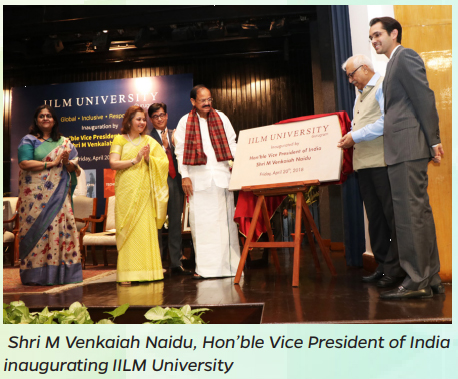 In his address to the gathering after inaugurating the IILM University Gurugram Campus from IILM Lodhi Road Campus, he said: “I am extremely delighted to inaugurate IILM University. My best wishes to everyone associated with this institution. I am also glad to know that the University’s mission is in sync with the vision of Prime Minister Narendra Modi to create a new India on the basis of inclusive economic development through education and skill development among students. I am sure that IILM University is going to make an important contribution in realizing the dream of an educated and skilled India. However, it should be remembered that the education of an individual does not end by merely acquiring degrees or employable skills. Education is meant to develop a holistic personality with qualities of head and heart. As Swami Vivekananda had said, “Education is the manifestation of the perfection already in man”.
In his address to the gathering after inaugurating the IILM University Gurugram Campus from IILM Lodhi Road Campus, he said: “I am extremely delighted to inaugurate IILM University. My best wishes to everyone associated with this institution. I am also glad to know that the University’s mission is in sync with the vision of Prime Minister Narendra Modi to create a new India on the basis of inclusive economic development through education and skill development among students. I am sure that IILM University is going to make an important contribution in realizing the dream of an educated and skilled India. However, it should be remembered that the education of an individual does not end by merely acquiring degrees or employable skills. Education is meant to develop a holistic personality with qualities of head and heart. As Swami Vivekananda had said, “Education is the manifestation of the perfection already in man”.
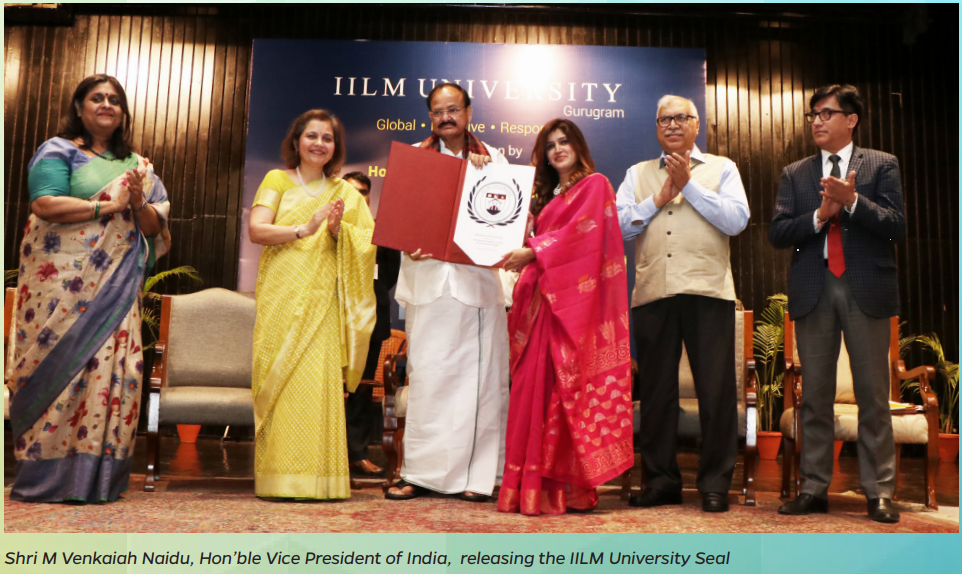
Education should not only prepare our youth to face challenges of a technologically driven knowledge society but also make them analyze critically and come out with innovative solutions to the problems faced by people. They should be confident of dreaming big and exploring uncharted territories. At the same time, students should remain rooted to our culture, traditions, customs and history. They should never neglect their parents, mother tongue, motherland and native village. They should always believe in co-existing harmoniously with nature for a better future. There is a need to revamp and reorient the higher education system in the country to equip students with the demands of knowledge driven world.
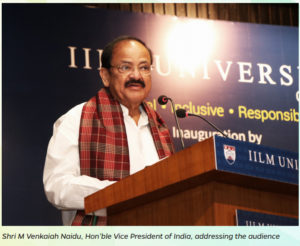 While, there are more than 800 universities in the country, it is a matter of concern that none of them figures in the top ranked global institutes. Merely expanding infrastructure with sleek looking buildings will not make an institution excellent unless it imparts education of highest standards without compromising on quality. Our universities should move in that direction by making necessary changes in the methods of pedagogy. I am glad to learn that the Vision of this University is to be Global, Inclusive and Responsible. Indian civilization has always considered the world as its family (Vasudhaiva Kutumbakam). Our commitment to the cause of climate change, solar energy and conserving nature, will hopefully, get reflected in educating students and making them globally responsible citizens. Mahatma Gandhi was the foremost proponent of this philosophy of being responsible. His seven sins -Wealth without Work, Pleasure without Conscience, Knowledge without Character, Commerce without Morality, Science without Humanity, Religion without Sacrifice and Politics without Principle – are guiding principles for shaping the ethical ethos of individuals, society, country and the world. I hope the University will try to inculcate such values. The University has to be inclusive given India’s diversity and inequality. While diversity is our strength, the huge inequality poses lots of challenges. Focus on entrepreneurship, technology and skill development will help develop an inclusive, just and equal society. sciplinary education is must. I am glad to know that University intends to pursue this objective with vigor. Education in silos will not equip students for future. Liberal Education with focus on Technology, Skill Development and Entrepreneurship will serve well the students, industry and the society. Information technology coupled with various scientific advances is changing our lives like never before. Therefore, the focus should be on futuristic technologies and students need to be prepared for jobs which do not exist. I am happy to know that students doing a major in fashion or design or economics can also study Artificial Intelligence or robotics at IILM University. We need more and more such multi-disciplinary and multi-skilled youngsters to meet future challenges.
While, there are more than 800 universities in the country, it is a matter of concern that none of them figures in the top ranked global institutes. Merely expanding infrastructure with sleek looking buildings will not make an institution excellent unless it imparts education of highest standards without compromising on quality. Our universities should move in that direction by making necessary changes in the methods of pedagogy. I am glad to learn that the Vision of this University is to be Global, Inclusive and Responsible. Indian civilization has always considered the world as its family (Vasudhaiva Kutumbakam). Our commitment to the cause of climate change, solar energy and conserving nature, will hopefully, get reflected in educating students and making them globally responsible citizens. Mahatma Gandhi was the foremost proponent of this philosophy of being responsible. His seven sins -Wealth without Work, Pleasure without Conscience, Knowledge without Character, Commerce without Morality, Science without Humanity, Religion without Sacrifice and Politics without Principle – are guiding principles for shaping the ethical ethos of individuals, society, country and the world. I hope the University will try to inculcate such values. The University has to be inclusive given India’s diversity and inequality. While diversity is our strength, the huge inequality poses lots of challenges. Focus on entrepreneurship, technology and skill development will help develop an inclusive, just and equal society. sciplinary education is must. I am glad to know that University intends to pursue this objective with vigor. Education in silos will not equip students for future. Liberal Education with focus on Technology, Skill Development and Entrepreneurship will serve well the students, industry and the society. Information technology coupled with various scientific advances is changing our lives like never before. Therefore, the focus should be on futuristic technologies and students need to be prepared for jobs which do not exist. I am happy to know that students doing a major in fashion or design or economics can also study Artificial Intelligence or robotics at IILM University. We need more and more such multi-disciplinary and multi-skilled youngsters to meet future challenges.
I am happy that you already started an Incubation Center. Entrepreneurship is the need of the hour. Students must be motivated to start their own businesses and not depend on jobs alone. India is a land of entrepreneurs and given the right opportunity our youngsters can excel and create global businesses. With about 65 percent of our population aged below 35 years, we need to take full advantage of this demographic dividend in building a prosperous and inclusive New India and educational institutions like IILM have a pivotal role to play in achieving that goal. I am pleased to note that IILM has been part of the United Nations Principles for Responsible Management Education initiative since its inception in 2008. The University’s focus on the 17 UN Sustainable Development Goals (a universal call to action to end poverty, protect the planet and ensure that all people enjoy peace and prosperity), and working closely with the UN Global Compact India will allow it to be a responsible provider of higher education Dr. Sarvepalli Radhakrishnan, India’s first Vice President, famously said, “The true teachers are those who help us think for ourselves”. I hope the University will have such teachers and researchers and it will also create such future teachers which we need in vast numbers. I wish the University well and may it rise to greater heights in achieving academic excellence. JAI HIND!” The Vice President congratulated the University and the entire team and said that students should be confident of dreaming big and exploring uncharted territories and remain rooted to our culture, traditions, customs and history. In his view Liberal Education with focus on Technology, Skill Development and Entrepreneurship will serve well the students, industry and the society. The address of the Vice President was met by a thunderous applause and palpable excitement amongst the University faculty, students and dignitaries for the new education hub in the heart of Gurgaon. Mr. Raj Nehru, Vice Chancellor, Haryana Vishwakarma Skill University offered a vote of thanks and endorsed the IILM University vision.
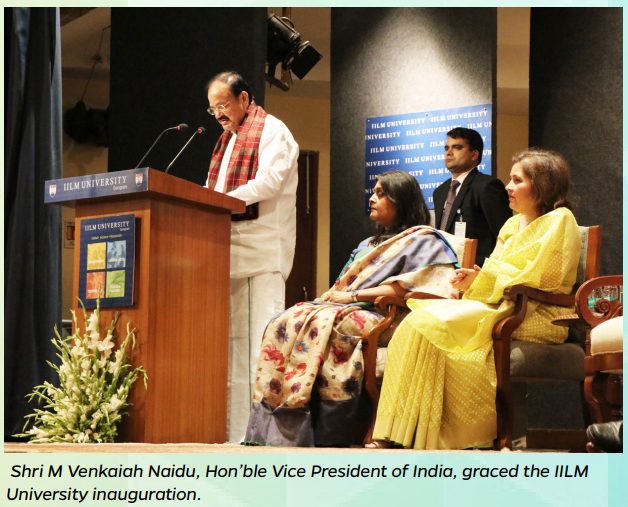 In his address he said, “It is a great pleasure and honor to be part of this august audience and this event where the University is going to focus on the Liberal Arts having its inauguration today with the hands of person who has deep passion for education. India is at the cusp of change, the world is also at the cusp of change. The amount of change that’s happening around the world, and the amount of innovation and disruption that’s happening all around, is triggering a lot of technological advancements. And these technological advancements are compelling and propelling growth. There is a big void happening between the values, the character, which has been entrained in our text, our books, for last many millennials. An education which proposes itself in the area of Liberal Arts can manifest as an anchor by joining technology and the values together and making the wholesome development of the individual, combing physical, mental, emotional and spiritual elements, which is the need of the time.
In his address he said, “It is a great pleasure and honor to be part of this august audience and this event where the University is going to focus on the Liberal Arts having its inauguration today with the hands of person who has deep passion for education. India is at the cusp of change, the world is also at the cusp of change. The amount of change that’s happening around the world, and the amount of innovation and disruption that’s happening all around, is triggering a lot of technological advancements. And these technological advancements are compelling and propelling growth. There is a big void happening between the values, the character, which has been entrained in our text, our books, for last many millennials. An education which proposes itself in the area of Liberal Arts can manifest as an anchor by joining technology and the values together and making the wholesome development of the individual, combing physical, mental, emotional and spiritual elements, which is the need of the time.
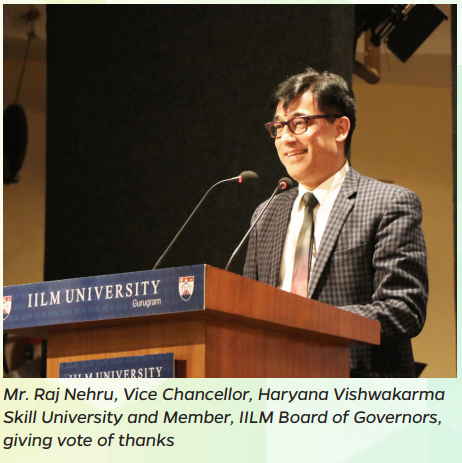 There is need not only to develop the physical comfort, but also to develop the emotional and spiritual comfort, because unless there is no internal comfort, unless the fears are not taken away, unless the doubts and suspicions are not taken away, there won’t be a wholesome development of an individual. Here, the opportunity that comes through liberal arts education is where you give opportunities to individuals not only to excel in the area of technology, but at the same time pick up the subjects which can align the person with philosophy, psychology and with subjects that can integrate both. I am glad, to tell you that Haryana Vishwakarma Skill University, which is the first skill university in India which also tells you about changing frames around the skilling and integrating vocational education has also signed an MOU with IILM University very recently and both the universities will be partnering together to take education to more meaningful way. Where today the educator, the educatee and the employer, all three are living in different worlds, this model of education will be integrating them together. On behalf of IILM University, I thank Honorable Vice President for giving his time and inaugurating this University and the stamp. I also thank all other guest, dignitaries to be part of this program” The day ended in vibrant excitement and enthusiasm and dignitaries exchanged ideas over high tea on initiatives to be taken towards making IILM University, an exceptional institution of higher education and research. The University unique in itself will help make Gurugram an education hub of pan India with a focus to collaborate with academic institutions, companies and entrepreneurs to make an impact through creation and dissemination of application oriented knowledge.
There is need not only to develop the physical comfort, but also to develop the emotional and spiritual comfort, because unless there is no internal comfort, unless the fears are not taken away, unless the doubts and suspicions are not taken away, there won’t be a wholesome development of an individual. Here, the opportunity that comes through liberal arts education is where you give opportunities to individuals not only to excel in the area of technology, but at the same time pick up the subjects which can align the person with philosophy, psychology and with subjects that can integrate both. I am glad, to tell you that Haryana Vishwakarma Skill University, which is the first skill university in India which also tells you about changing frames around the skilling and integrating vocational education has also signed an MOU with IILM University very recently and both the universities will be partnering together to take education to more meaningful way. Where today the educator, the educatee and the employer, all three are living in different worlds, this model of education will be integrating them together. On behalf of IILM University, I thank Honorable Vice President for giving his time and inaugurating this University and the stamp. I also thank all other guest, dignitaries to be part of this program” The day ended in vibrant excitement and enthusiasm and dignitaries exchanged ideas over high tea on initiatives to be taken towards making IILM University, an exceptional institution of higher education and research. The University unique in itself will help make Gurugram an education hub of pan India with a focus to collaborate with academic institutions, companies and entrepreneurs to make an impact through creation and dissemination of application oriented knowledge.
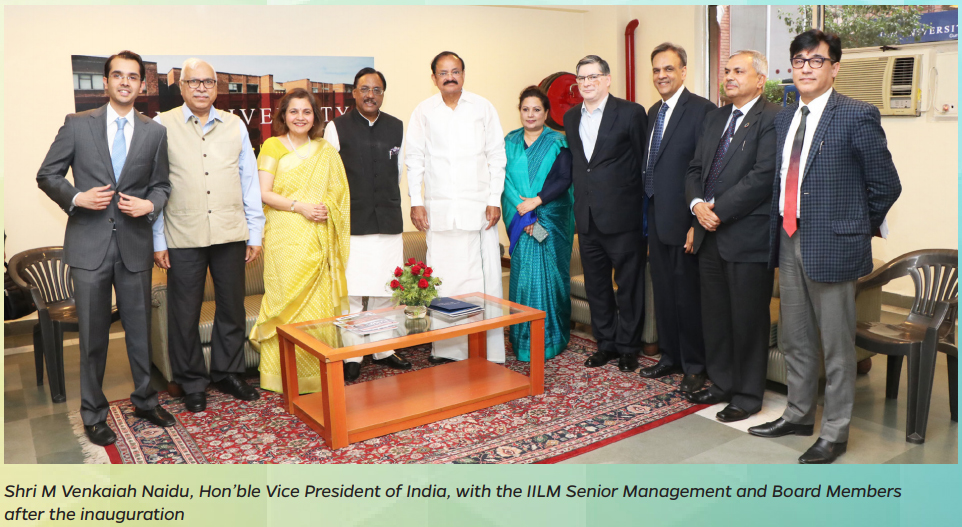
IILM University has designed the pedagogical experience through innovation and experiential learning opportunities both inside and outside the classroom, whereby providing a holistic development to the students. At the same time, the pedagogical experience empowers the students to deal with diversity, change and complexity, bringing them closer to their personal & professional goals. The University will follow the blended learning process where theory and real world practices are weaved into the curriculum to make the students ready for employability. Teaching methods will include case studies, simulation, role plays, seminars and presentation. IILM University’s international partnerships will aid in enhancing students’ ability to relate to global markets giving them an opportunity to draw informed deductions and comparisons between developed and fast developing economies. All faculty at IILM University have a Ph.D and come from myriad backgrounds. This wide mix of experience combined with extensive research and industry experience adds an exceptional learning experience for the creative minds. Faculty also acts as mentors to the students which fosters a strong bond between the students and the teacher guiding the disciples to achieve their goals and aspirations in life. The full amenity residential campus ensures plenty of opportunity to the students to compete and collaborate on various activities. The IILM residences allow students to focus on personal, academic and professional development during their study.
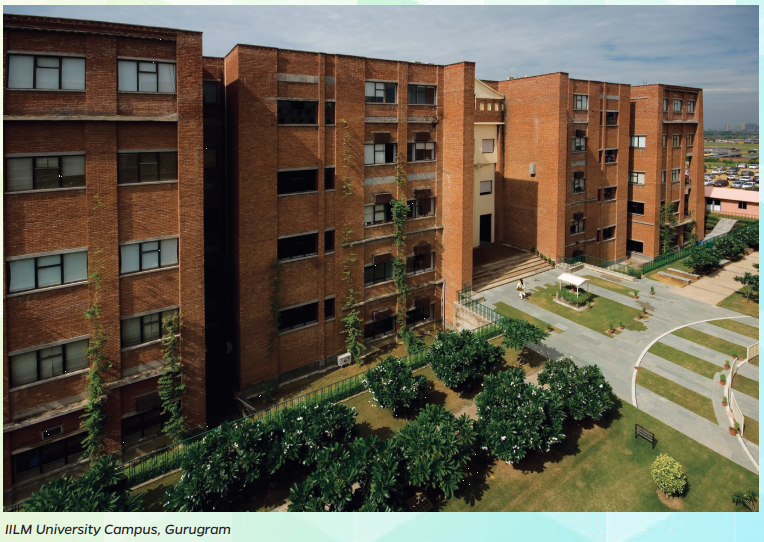
IILM University also offers merit and needs based scholarship to all deserving candidates thus attracting the brightest of the minds. The scholarships are also offered for all round excellence in areas other than academics, for girl students, for wards of defense personnel, for wards of martyrs and scholarships are also considered favorably for students in cases of emergency. With great optimism, the Industry at large, eminent luminaries and students across Gurugram have all welcomed this news of IILM offering different programs through IILM University Gurugram. The academic fraternity at IILM is eagerly looking towards making the entire experience enriching where students are taken through a learning journey which is Global, Responsible and Inclusive.
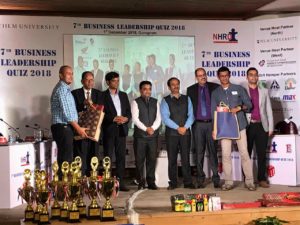
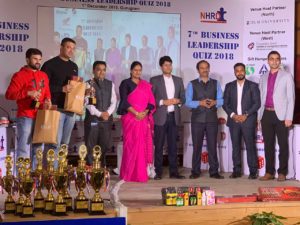
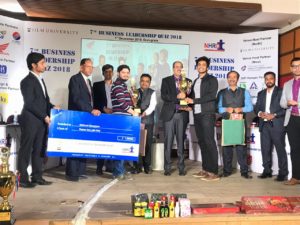
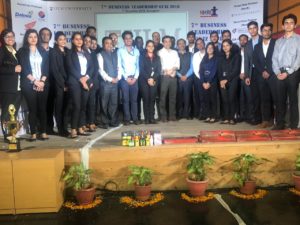 “I think what makes us special is that, among all the quiz and game shows out there, ours tends to encourage learning”
“I think what makes us special is that, among all the quiz and game shows out there, ours tends to encourage learning”
